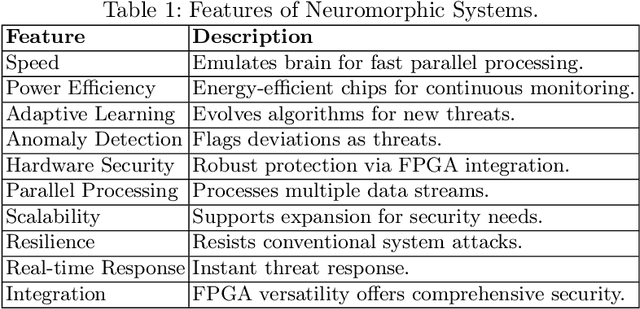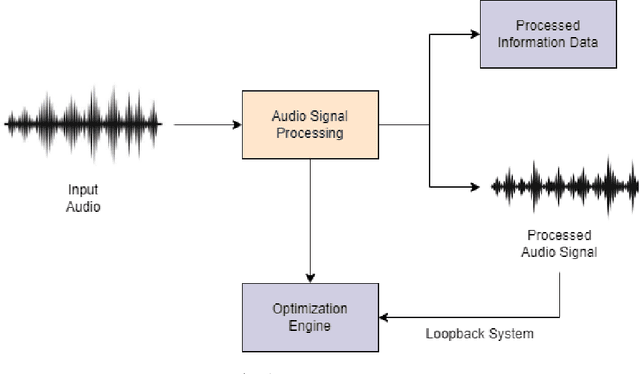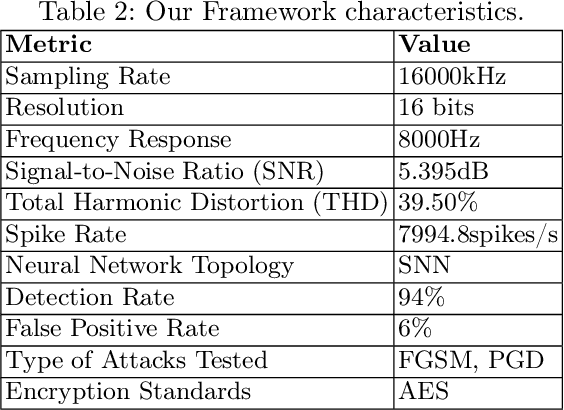Yusuf Sur
NEUROSEC: FPGA-Based Neuromorphic Audio Security
Jan 22, 2024



Abstract:Neuromorphic systems, inspired by the complexity and functionality of the human brain, have gained interest in academic and industrial attention due to their unparalleled potential across a wide range of applications. While their capabilities herald innovation, it is imperative to underscore that these computational paradigms, analogous to their traditional counterparts, are not impervious to security threats. Although the exploration of neuromorphic methodologies for image and video processing has been rigorously pursued, the realm of neuromorphic audio processing remains in its early stages. Our results highlight the robustness and precision of our FPGA-based neuromorphic system. Specifically, our system showcases a commendable balance between desired signal and background noise, efficient spike rate encoding, and unparalleled resilience against adversarial attacks such as FGSM and PGD. A standout feature of our framework is its detection rate of 94%, which, when compared to other methodologies, underscores its greater capability in identifying and mitigating threats within 5.39 dB, a commendable SNR ratio. Furthermore, neuromorphic computing and hardware security serve many sensor domains in mission-critical and privacy-preserving applications.
 Add to Chrome
Add to Chrome Add to Firefox
Add to Firefox Add to Edge
Add to Edge